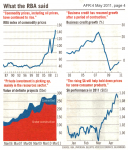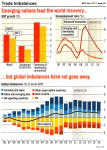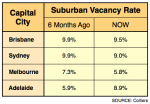Size-wise, as a proportion of Australia’s economy … Manufacturing and Mining contribute more or less the same output.
 However, Mining’s investment spend is currently more than three times that being spent by the Manufacturing sector.
However, Mining’s investment spend is currently more than three times that being spent by the Manufacturing sector.
All the media attention has mainly been focused upon this disparity. But that doesn’t really tell you the complete story — as you can see from the first of these graphs. [Read more…]
 No doubt you will have experienced your share of problems, when it comes to arranging the finance for a recent purchase you may have finalised.
No doubt you will have experienced your share of problems, when it comes to arranging the finance for a recent purchase you may have finalised.




















